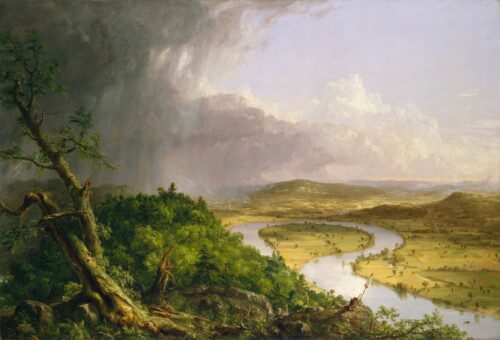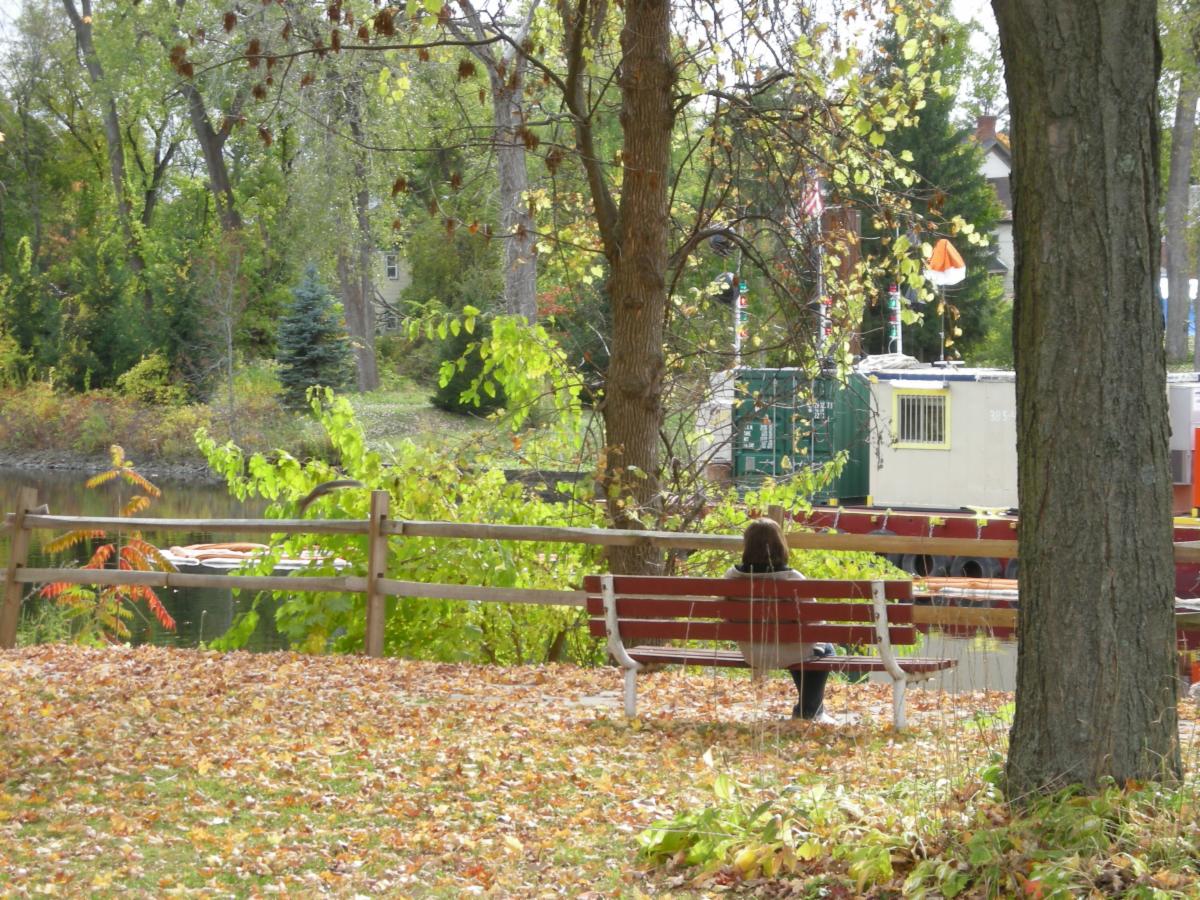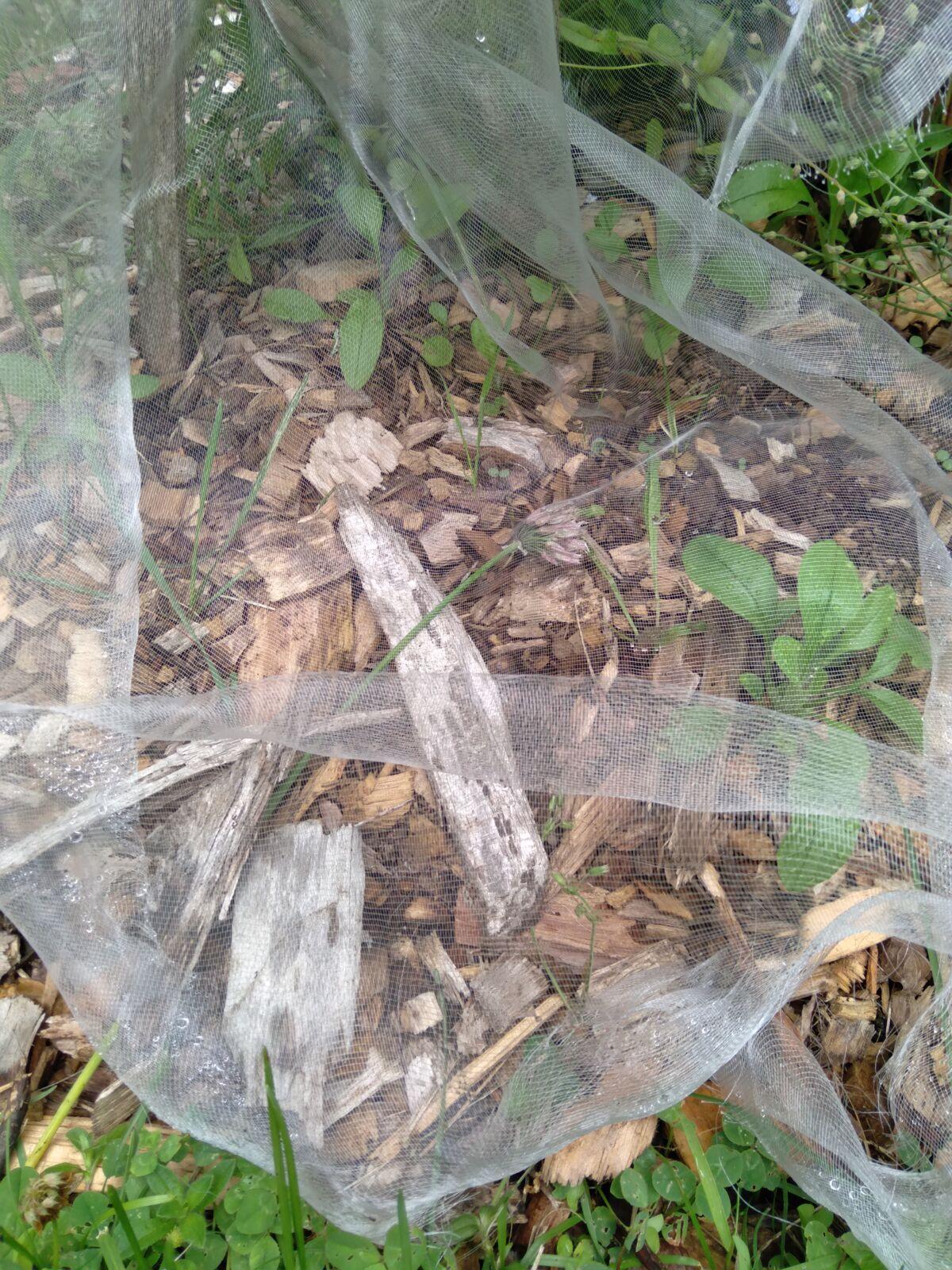
The American landscape painter Thomas Cole, born in 1801, has been called an “environmentalist before there was environmentalism.” Cole, who was born in England, loved the wild, vast beauty of the United States, and he was alarmed by its destruction under the self-righteous philosophy of Manifest Destiny, which claimed that God intended white European Americans to subdue the land with industry and development. In his most famous painting, The Oxbow, Cole portrays dense wilderness on the left side of the canvas and neatly laid agricultural plots on the right, for to him, proper tending of the land was key to maintaining the right human relationship with nature.
Another proto-environmental artist was expressing concern about the destruction of natural beauty almost two thousand years before Cole painted his perspectives.
The Roman poet Horace (65-8 BCE) made no secret of his distress over the loss of the Roman wilderness and farm fields to development:
Huge palaces will soon leave few acres
for the plough. On every side fishpools
broader than the Lucrine lake
will meet the eye and bachelor plane
will push out the elm. Then myrtles and beds of violet
and everything the nose could desire
will then sprinkle perfumes where the old farmer
had his fertile olive groves.
….
This is not what was prescribed by the auspices
taken by Romulus and bearded Cato
The way Horace saw it, the Romans of his day had lived in a place the gods themselves had blessed; now the gods were apparently either indifferent to or aligned with the drive of rapacious humans.
Both artists created art with a cause, and their cause was respect for the natural world, which they felt their society was losing and without which that society could not survive. It makes you wonder: what kind of art will our grandchildren create to mourn the loss of their nature? And who will be making such art in another two thousand years?
MORE RADICAL JOY REVEALED
“There’s No Wounding Here”
Every now and then, around this time of year, in the weeks leading up to the Global Earth Exchange, someone emails to tell me they’d like to participate in our annual event of giving beauty [...]
Do It Though No One Notices
A young woman I know who lives in North Carolina considers herself an ardent environmental activist. She belongs to the Sierra Club and The Wilderness Society, works for an organization that runs therapeutic wilderness programs [...]
In Memory of a Cardinal
Radical Joy for Hard Times has always urged our members around the world to give attention and beauty to those places and beings that have meaning for them. It’s not necessary to seek out some [...]


